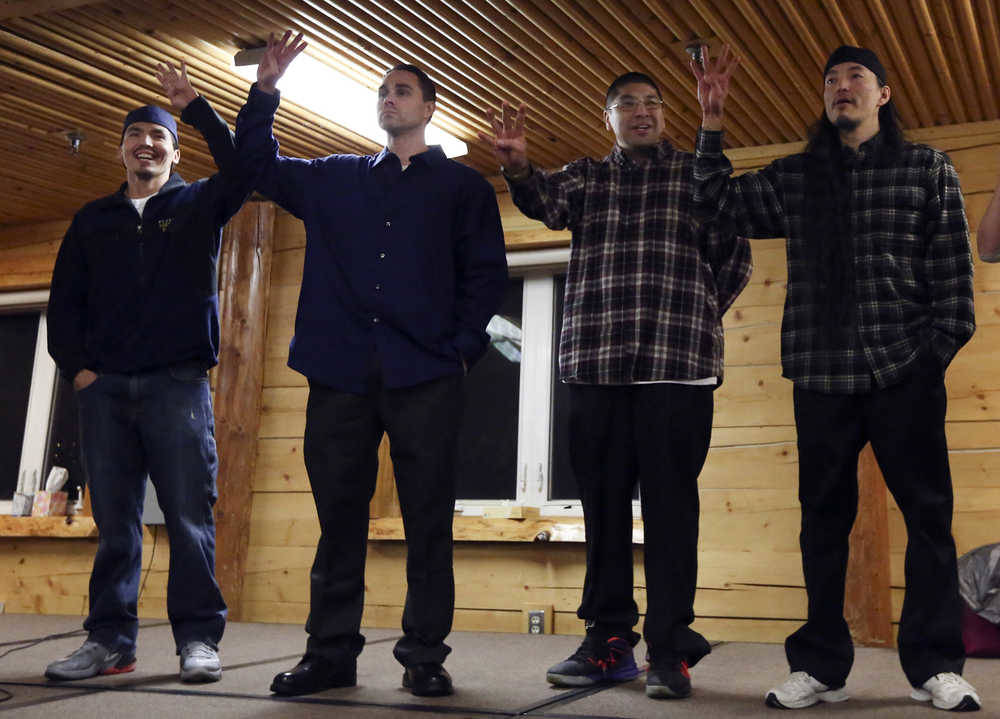A federal judge ruled against the Fairbanks Four in an opinion issued Monday, dismissing their efforts to seek compensation from the city of Fairbanks and law enforcement.
In his opinion, judge Hezekiah Russel Holland found Marvin Roberts, George Frese, Kevin Pease and Eugene Vent did not have a case strong enough to overcome a settlement agreement they signed with the city of Fairbanks and State of Alaska as a condition of their release from prison.
“Obviously we’re disappointed and we’re going to appeal the decision to the Ninth Circuit Court of Appeals,” said Michael Kramer, the attorney for the four men.
Matthew Singer, representing the city of Fairbanks, said he believes the court correctly applied U.S. Supreme Court precedent and that the Ninth Circuit will see the case the same way that Holland does.
Monday’s decision was the latest legal battle for Roberts, Frese, Pease and Vent, who in 1997 were convicted of murdering John Hartman in Fairbanks. Hartman was white, the four men were not. After their conviction, there were widespread protests and suggestions that the Fairbanks Police Department had targeted the four men despite evidence indicating another suspect.
Those suggestions led to a campaign that asked the state to reopen the case against the four men. In 2015, a five-week hearing showed significant evidence that someone else had killed Hartman. Soon afterward, the city of Fairbanks and State of Alaska offered a settlement agreement to the four men: they could go free with charges dropped as long as they agreed to not seek claims against the city or state.
The four men signed the agreement, and they were freed from prison eight days before Christmas in 2015.
Two years later, Kramer (initially representing just Roberts and later all four men) filed suit in federal court, alleging that the city violated their civil rights and that the agreement was the result of coercion, therefore invalid.
Holland, citing prior case law, disagreed with that argument. Instead, he found that the men are unable to bring claims against the city because their original conviction was not declared “invalid,” such as when a case is overturned on appeal.
“In fact, the parties’ stipulation expressly provided ‘that the original jury verdicts and judgements of conviction were properly and validly entered based on proof beyond a reasonable doubt,’” Holland wrote.
In other words, the four men already agreed that they were cleared based on new evidence, not on old evidence deliberately concealed.
Kramer had sought a jury trial which might award cash compensation to the four, but by phone Tuesday he said the case is about justice for four men who were wrongfully convicted.
“We want to achieve justice and we just want the opportunity to put it in a jury’s hands to decide whether Fairbanks police acted properly or improperly in creating the case against them,” he said. “The case is not over. It’s been an uphill battle from Day 1 when the Fairbanks Four were first targeted as suspects by the (Fairbanks Police Department), and 20 years later, unfortunately, they’re still trying to achieve justice.”
• Contact reporter James Brooks at jbrooks@juneauempire.com or 523-2258.

